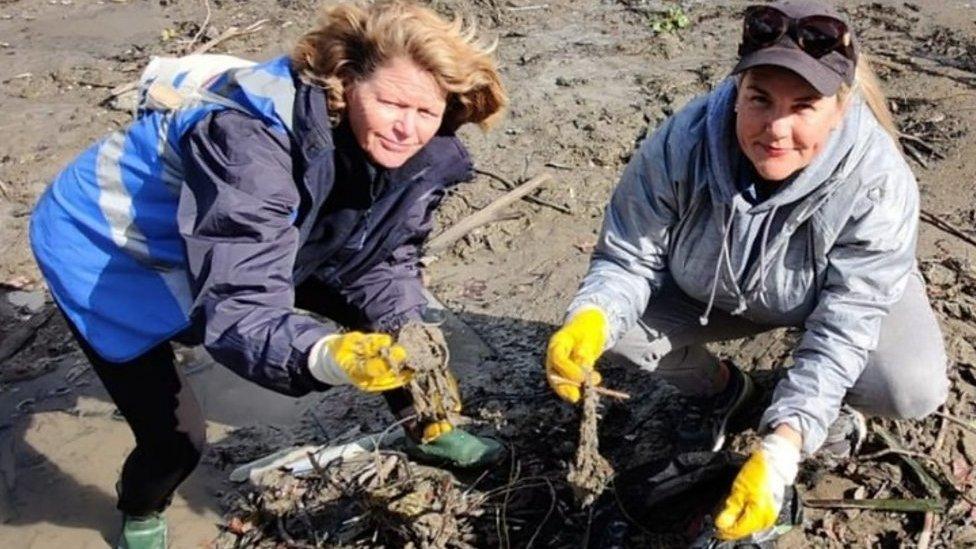River Thames: Mounds of wet wipes reshaping waterway
- Published
Campaigners cleared 27,000 wet wipes from one 200m stretch of the river bank
Piles of discarded wet wipes are forming large mounds along the banks of the Thames which are changing the shape of the river, according to campaigners.
London's Victorian sewage system means that wipes flushed down the toilet are often deposited straight on to the riverbanks when it rains.
When mixed with mud the wipes form slimy layers, with one mound extending 1.4m (4ft 6in) in five years.
A charity has called for a law to stop wipes being labelled as "flushable".
Thames21 said the problem was "as bad as it ever was" and the government needed to step in.
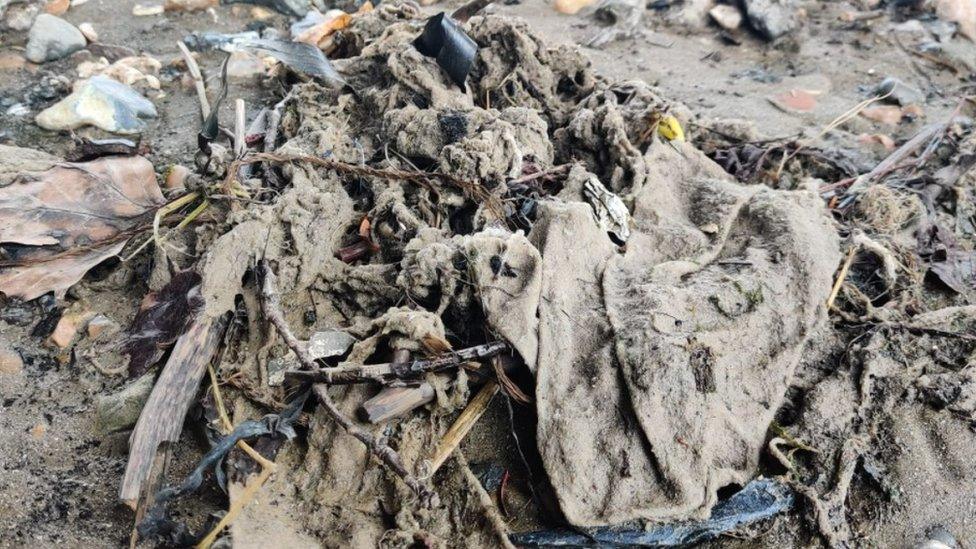
London's sewage system means that wipes flushed down the toilet are sometimes deposited onto the riverbanks
AJ McConville, from Thames21, said: "We're calling for clear and obvious labelling and for that to be mandatory.
"At the moment there are no official standards for what you can say is flushable.
"Wipes that contain plastic, that won't break down and that will end up polluting the river can be labelled flushable, and there's nothing to stop wet wipe companies doing that," he added.
'Changing the foreshore'
Mr McConville and a group of volunteers said they had picked up 27,000 wet wipes mixed into the mud in the 200m (655ft) stretch between Battersea Bridge and Albert Bridge.
"Most of this area has been transformed by wet wipes," he said.
"They're hidden because they're covered in mud but they're actually collecting mud together and changing the foreshore of the Thames."
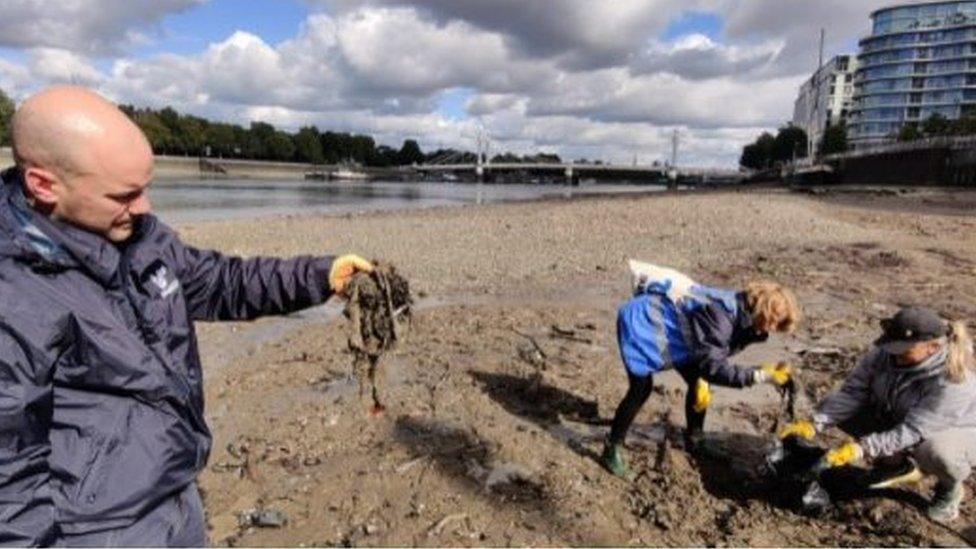
Volunteers said clearing wet wipes from the river felt "like a never-ending battle"
Volunteer Kathy Stevenson said the wet wipes were forming "small mountains" that were hard to clear up.
"It feels like a never-ending battle," she said.
"We know the wet wipes are a metre deep or more and that they're creating actual small mountains here and blocking up the passage of the river.
"I think a lot of people don't know that if they flush wipes it all goes into one big pipe and every time it rains there's a problem with the sewage overflowing."
Another volunteer, Janice Bruce-Brand, said the amount of litter in the river was "very disheartening" and she had stopped using wet wipes altogether.
"Let's go back to using a face cloth or cotton wool that gets disposed of in a dustbin and not flushed down the toilet," she suggested.
A Department for the Environment, Farming and Rural Affairs spokeswoman said the government had a 25-year plan with a clear commitment to "eliminate all avoidable plastic waste".
She said: "We are working with manufacturers and water companies to ensure labelling is clear on wet wipes and also raising awareness about how to dispose of them properly."
Related topics
- Published15 August 2018
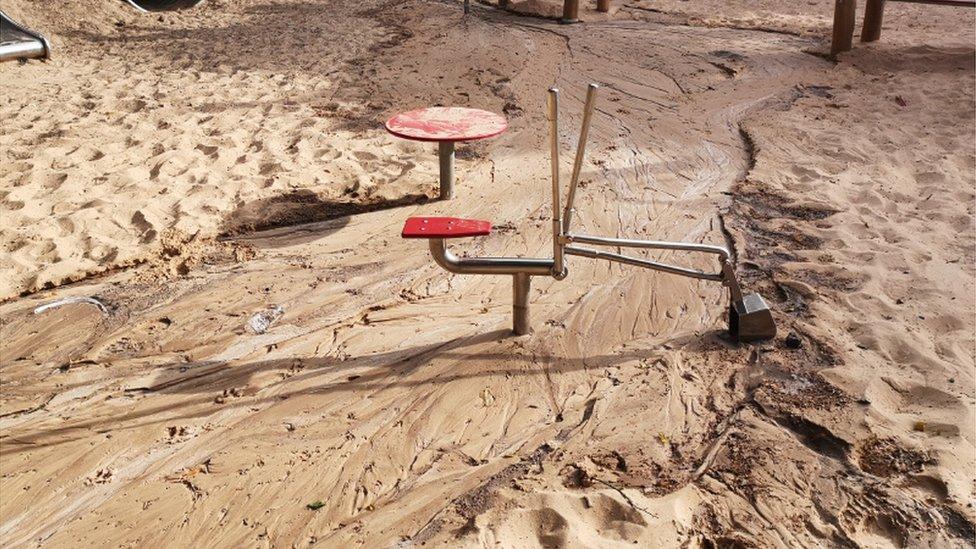
- Published11 January 2019
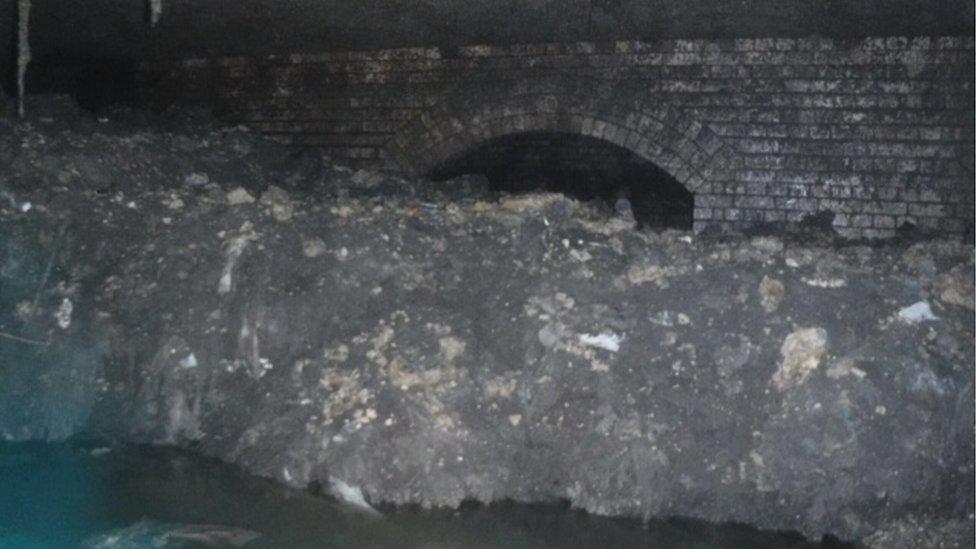
- Published26 October 2016
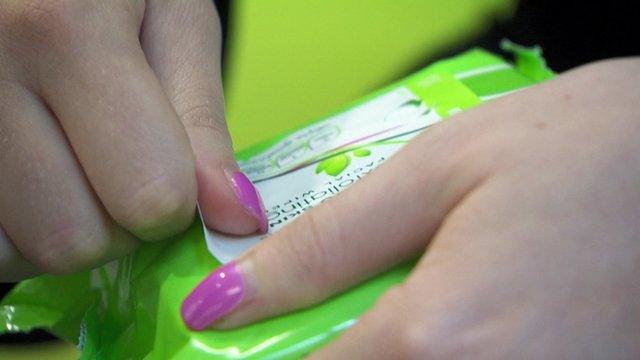
- Published13 May 2018

- Published30 September 2021
